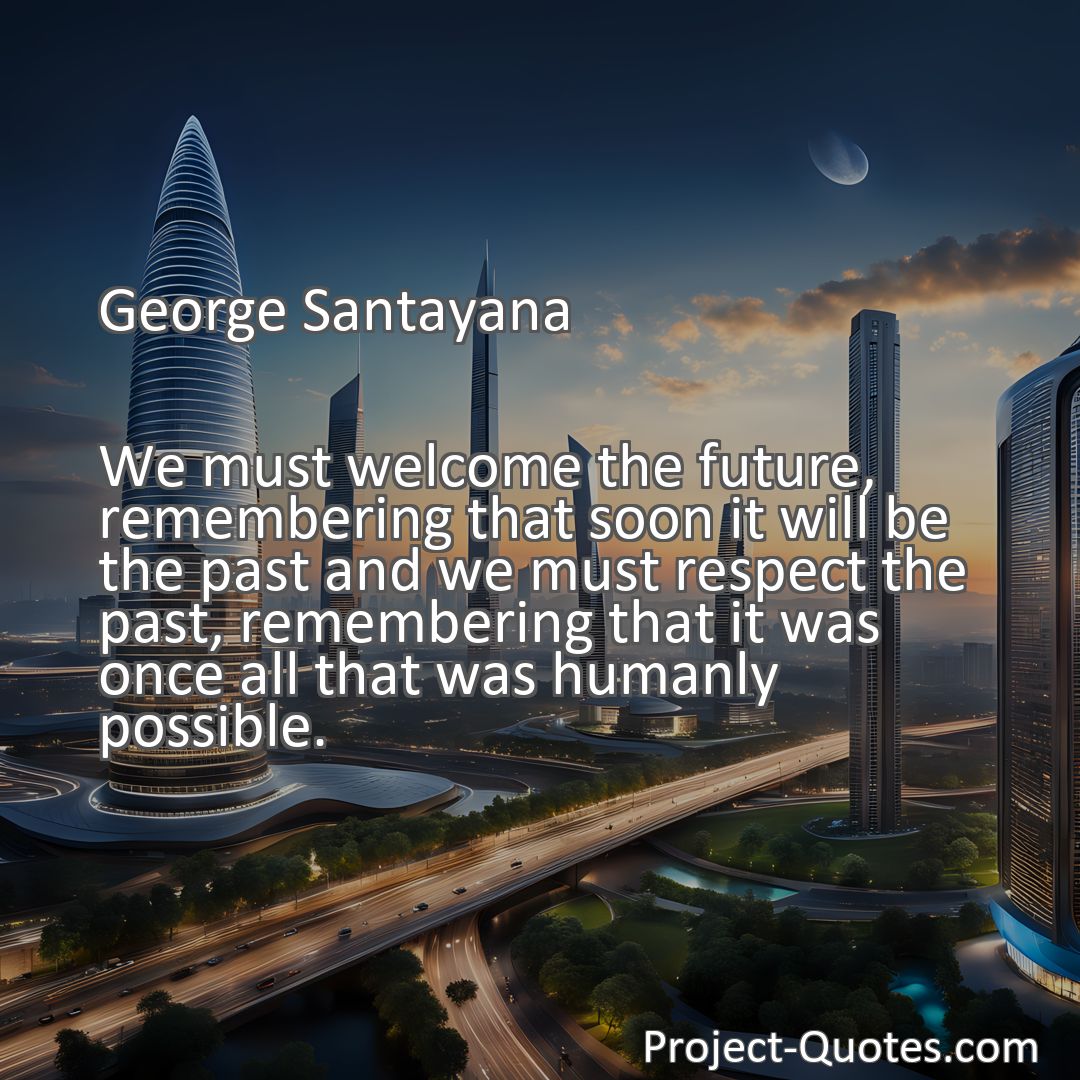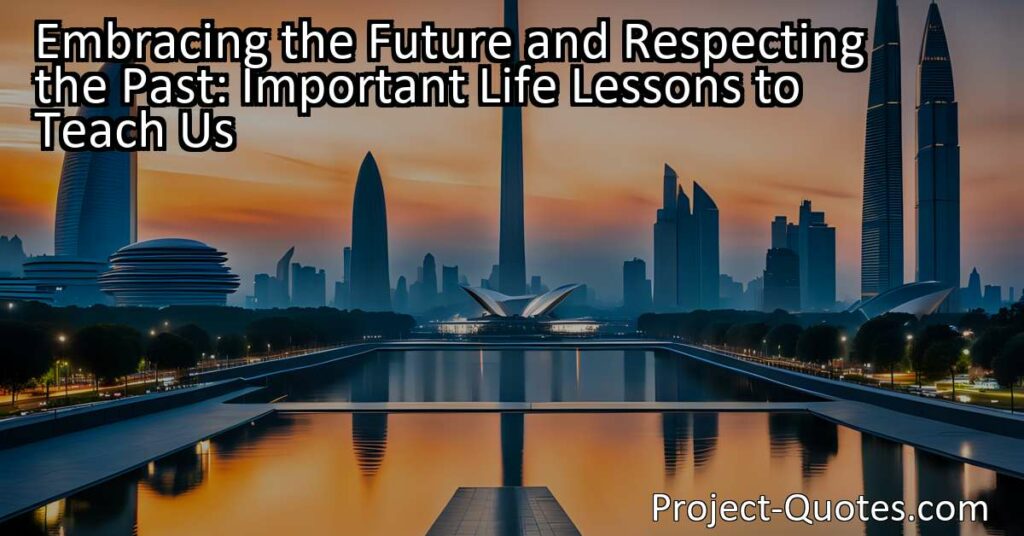We must welcome the future, remembering that soon it will be the past and we must respect the past, remembering that it was once all that was humanly possible.
George Santayana
“Embracing the Future and Respecting the Past: Important Life Lessons to Teach Us” explores the significance of valuing the lessons learned from the past while embracing the opportunities of the future. By studying history and understanding our roots, we can gain valuable insight and wisdom that can guide our decisions and actions. This article emphasizes the importance of striking a balance between embracing innovation and cherishing our shared humanity.
Table of Contents
- 1 We must welcome the future, remembering that soon it will be the past and we must respect the past, remembering that it was once all that was humanly possible.
- 2 George Santayana
- 3 Meaning of Quote – We must welcome the future, remembering that soon it will be the past and we must respect the past, remembering that it was once all that was humanly possible.
- 4 Freely Shareable Quote Image
- 5 Related
Meaning of Quote – We must welcome the future, remembering that soon it will be the past and we must respect the past, remembering that it was once all that was humanly possible.
The quote “We must welcome the future, remembering that soon it will be the past and we must respect the past, remembering that it was once all that was humanly possible” holds a profound meaning that resonates with people of all ages and backgrounds. In the fast-paced world we live in today, where technological advancements continue to shape our lives, it is crucial to embrace the future while valuing and cherishing the lessons learned from the past.
The future is an inevitable part of our lives. No matter how much we resist or fear it, time marches forward. However, instead of fearing or resisting the future, it is essential to welcome it with open arms. Embracing the future means being open to new ideas, innovations, and changes that can bring progress and growth. It requires a mindset that is willing to adapt, learn, and evolve. By doing so, we can make the most of the opportunities that lie ahead.
But what does it mean to respect the past? The past refers to a time that has already elapsed, a time that has shaped and influenced the present. It is important to acknowledge and honor the achievements, struggles, and sacrifices of those who came before us. The past serves as a valuable source of wisdom and guidance that can inform our present decisions and actions.
When we respect the past, we recognize that it was once the culmination of all that was humanly possible at the time. Our ancestors, through their ingenuity and perseverance, paved the way for the world we live in today. From the ancient civilizations that brought us written language and architectural wonders to the scientific breakthroughs of the Renaissance and the advancements of modern technology, each era of the past has contributed to our collective progress.
Respecting the past should not be mistaken for living in the past or being resistant to change. It is about honoring our roots, understanding our history, and acknowledging the mistakes and successes that have shaped our present reality. By studying the past, we can gain insight into the consequences of certain actions, learn from past errors, and build upon the foundation laid by our predecessors.
In today’s technologically advanced world, it is easy to become detached from the past. We are constantly bombarded with new information, entertainment, and gadgets that keep us engaged in the present moment. However, by neglecting the lessons of the past, we risk repeating the same mistakes and overlooking valuable knowledge and experiences.
History provides us with a wealth of stories, both triumphant and tragic, that can teach us important life lessons. Whether it is the struggles of the Civil Rights Movement, the devastation of World Wars, or the scientific breakthroughs that revolutionized medicine, understanding the past allows us to appreciate the progress we have made and inspires us to continue making positive changes.
Moreover, respecting the past helps foster a sense of gratitude. When we recognize the struggles and accomplishments of those who came before us, we gain a deeper appreciation for the privileges and freedoms we have today. It reminds us of the sacrifices made by our ancestors and encourages us to honor their legacy by striving for a better future.
In a rapidly changing world, it is easy to feel overwhelmed by the rapid pace of progress. However, by embracing the future while respecting the past, we can find a balance that allows us to navigate the complexities of the modern world. It is not a matter of choosing one over the other but rather recognizing the symbiotic relationship between the two.
As technology continues to advance at an unprecedented rate, it is vital to keep in mind the core values and principles that have stood the test of time. By combining the wisdom of the past with the potential of the future, we can create a world that embraces innovation while not losing sight of our shared humanity.
The quote reminds us that the future will soon become the past, and we must approach it with open minds and hearts. It invites us to be curious, to ask questions, and to challenge the status quo. It urges us to be willing to adapt, grow, and learn from our mistakes.
In conclusion, the quote “We must welcome the future, remembering that soon it will be the past and we must respect the past, remembering that it was once all that was humanly possible” encourages us to strike a balance between embracing the future and respecting the past. By doing so, we can ensure our growth and progress while acknowledging the significance of our history. Let us approach the future with enthusiasm and gratitude, knowing that it is our responsibility to shape it for the better.
I hope this quote inspired image brings you hope and peace. Share it with someone who needs it today!


